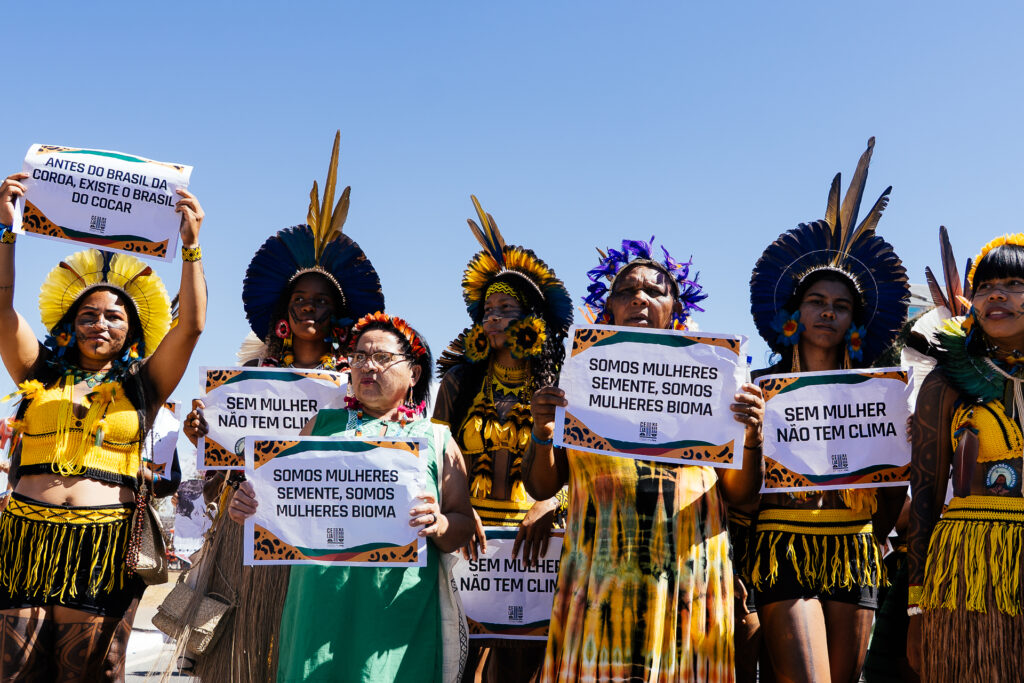November 04, 2025
by Leticia Doormann, TINTA´s General Coordinator and Co-Founder
“Indigenous women are the guardians of the planet for the healing of the Earth.” With this conviction, Indigenous and tropical forest women from Latin America seek to raise their voices at COP30, reaffirming their leading role in the global climate agenda and reminding the world that climate justice will only be possible with gender and territorial justice.
For the first time in history, a Conference on Climate Change will take place in the heart of the Amazon — land of urucum and resistance — in Belém do Pará. There, Indigenous and forest women will arrive with a clear message: the struggle for climate justice is inseparable from the struggle for life, for bodies, and for territories.
The Road to COP30
If the climate crisis is not gender-neutral, its solution cannot be either. From the Andes to the Caribbean, and from the Cerrado to the Amazon, Indigenous organisations across Latin America and the Caribbean have been joining forces to arrive at COP30 with a stronger, more articulated, and collective voice.
This journey has been marked by numerous gatherings, mobilisations, and deep territorial coordination, with women playing a leading role. Key milestones include the territorial Pre-COPs, where common priorities were advanced; coordination spaces around the campaign “La Responsa Somos Nos”, which strengthened alliances among organisations and networks; and the Indigenous Women’s March, where thousands of leaders reaffirmed in Brasília that there can be no climate justice without gender justice, without demarcated territories, and without the voices of those who protect life.
There, under the leadership of ANMIGA (National Articulation of Ancestral Indigenous Women Warriors), they launched the declaration “Our bodies are territory! We are the guardians of the planet for the healing of the Earth!” — a statement that unites bodies, territories, and spirituality in the defence of life.
This article was translated using artificial intelligence.
We invite you to read the full article, in Portuguese, published by Mídia NINJA
